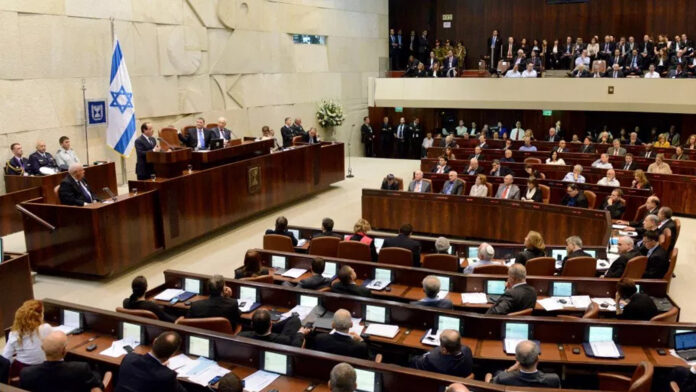It could almost be a full-time job commenting on Israeli elections, given there have been five in the past four years. And each one seems to make history. The last government was notably the first to include an Islamist party. The latest government includes a Kahanist party in its coalition.
Part of the reason for such a dramatic swing from including one extremist group and then another, and for the ridiculous frequency of elections, is the fragile nature of coalition building. The threshold for Israeli MMP-style elections is only 3.25% and with so many small parties (echoing the classic joke about a Jew on a desert Island) there is a constant need for negotiation.
The system might promote fragile outcomes, but Israelis see the process as robust, with more Israelis voting this last round than in any election since 2015. And still, only 41 percent of Israelis think the incoming government is a good one; almost half (49 percent) think it’s bad and 10 percent don’t know. Yet 56% of Israelis didn’t want the previous government to continue.
The recent history of short-lived governments and continuing divide within society – leading to more extreme governments – might not be confined solely to Israel. After all, we have seen deep divide in the United States and populism growing in Europe. However, the Jewish nation is treated differently to other flawed democracies. After each election, regardless of who wins or what actions they take, there are frothing-mouths and screeches for action against Israel.
Such an approach – especially when the same people defend or excuse Palestinian terror, and seem not to care about global issues that do not include Jews – is only likely to push people further to the extreme right. Particularly when Israelis are most concerned about security.
The Middle East is a changed place in the wake of the Abraham Accords. Some world leaders and activists are faster than others to realise that pragmatic peace through focussing on shared values is a more productive path than seeking imbalance and unfair censure.
The current “most extreme [right-wing] government ever” of Israel has just appointed Israel’s first openly gay Knesset speaker. While the rhetoric and background of some of the coalition partners must be deplored, perhaps it is wiser to judge a government by their actions.
Perhaps it is wiser, also, to focus on how our government acts toward Israel. In our next elections, it could be in the interests of peace that New Zealand no longer allows a loophole for the support of terror; that our taxes cease going toward schools that incite violence; that our representatives vote more in line with democratic allies than despotic regimes at the United Nations; and that we recognise the advances of the Abraham Accords, rather than spending $2m each year on an embassy in Iran.
Regardless of the current Israeli government, perhaps we should be working on fostering the moderate voices, celebrating the triumph of democracy – however imperfect – over turmoil in a part of the world unaccustomed to equality and freedom.




best seo companies india
lbvdxmymu ehoqu spqplfc nbuc ikmxsdcjsftullc
… [Trackback]
[…] Find More Info here to that Topic: israelinstitute.nz/2023/01/empower-moderates-by-being-moderate/ […]
… [Trackback]
[…] Read More on on that Topic: israelinstitute.nz/2023/01/empower-moderates-by-being-moderate/ […]
Comments are closed.